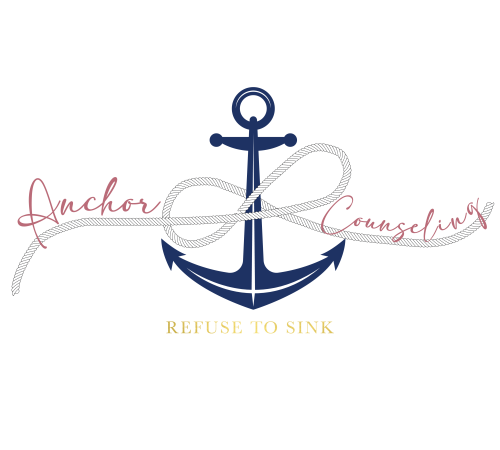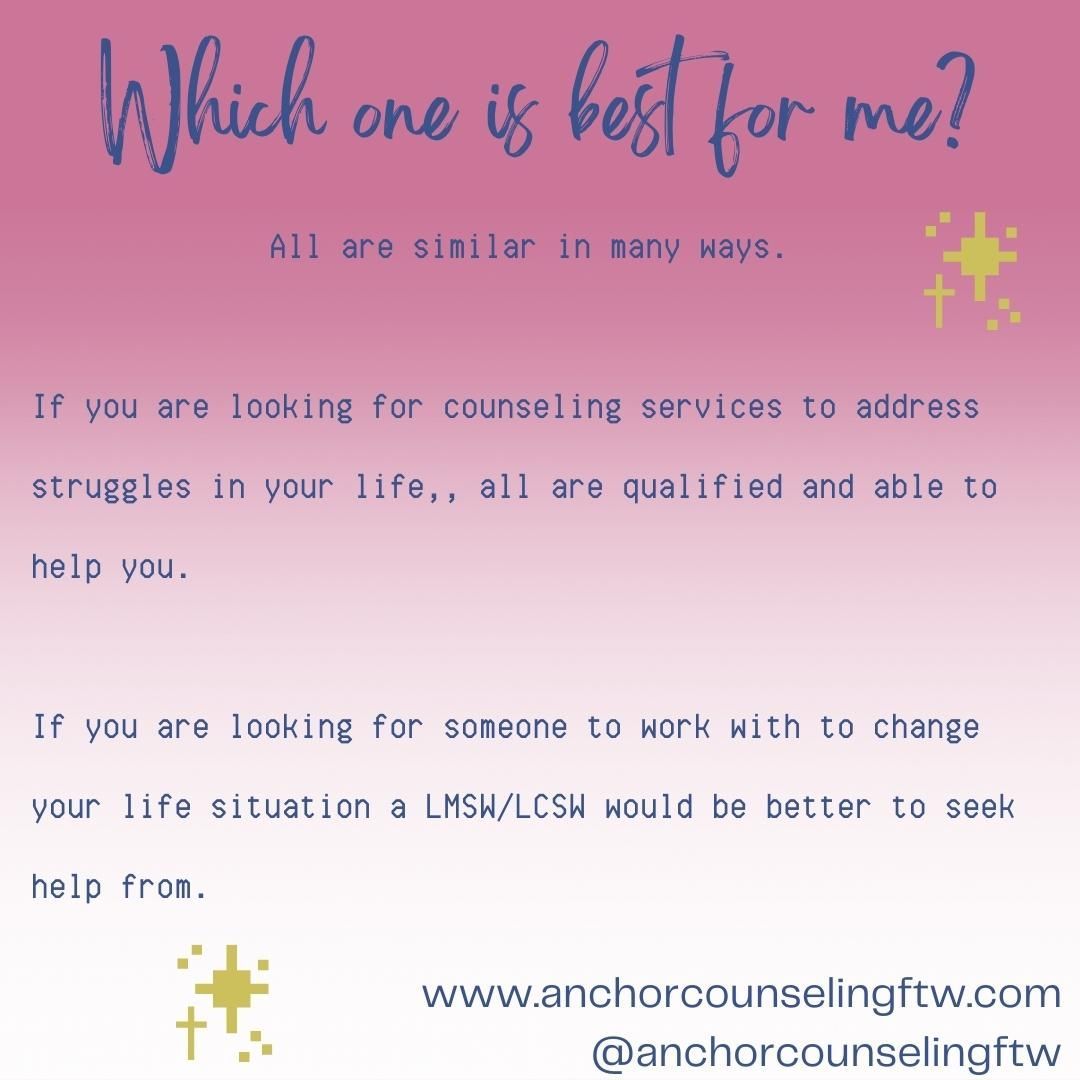
Which one should you choose?
You may be asking which therapist is right for you? Despite being multiple options, most of the professionals listed are qualified to help you with individual, couples or family therapy. The one to best suite you will depend on what you're wanting to focus on and the issues you are facing. Feel free to reach out if you ever need help or have questions. We are happy to help!
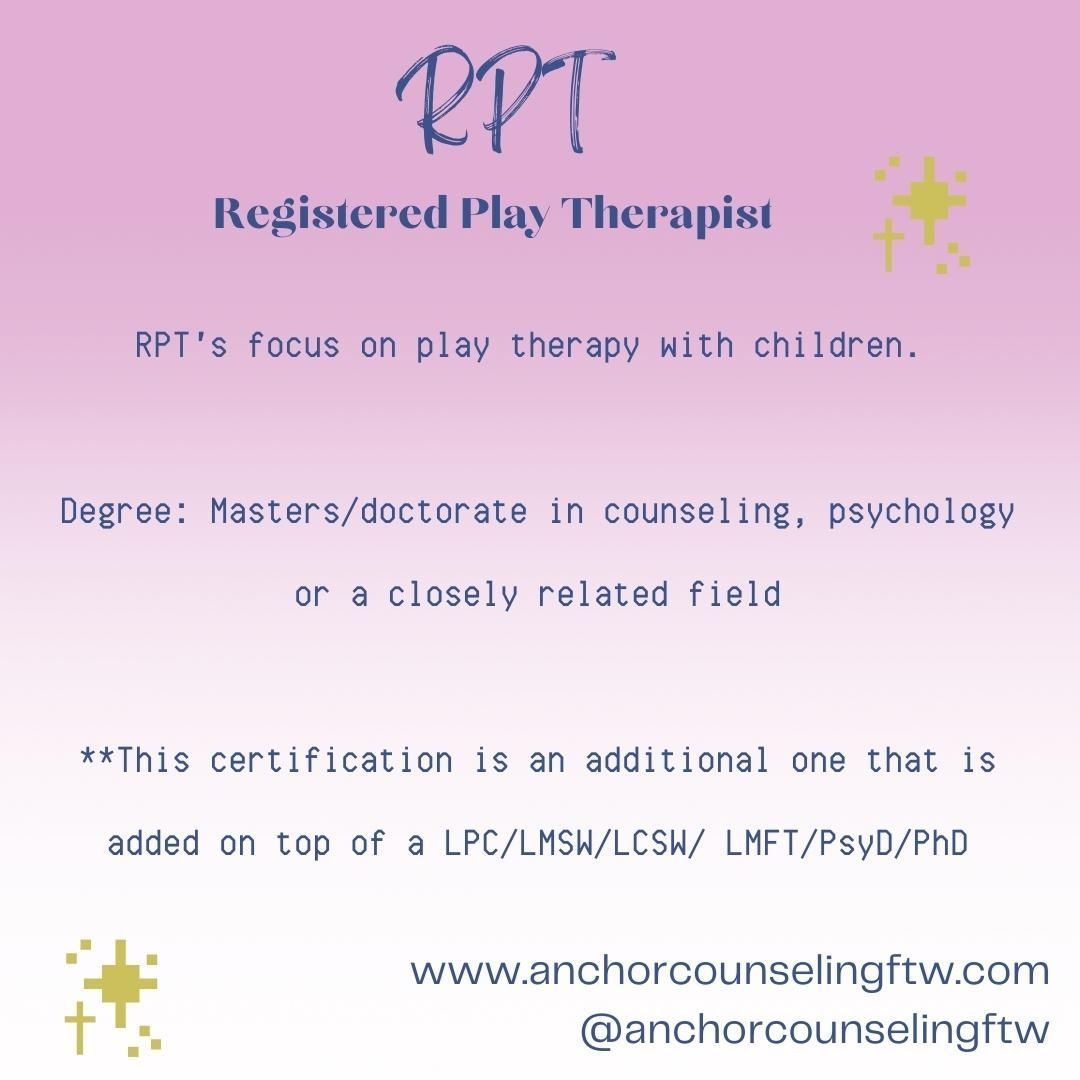
Registered Play Therapist
RPT (Registered Play Therapist) have specific training in play therapy for children. Play therapy allows children a more relaxed and inviting atmosphere for therapy as they are not as aware of their feelings. This helps them to communicate their needs rather than engaging in talk therapy. Many therapists have received some form of education/training in play therapy and integrate it into their sessions with children. RPT's have undergone intense training for this additional certification. Degree: RPT's have a masters degree and license in one of the previously mentioned areas (except a stand alone LCDC) or they may have a doctorate degree (psychologist/psychiatrist).
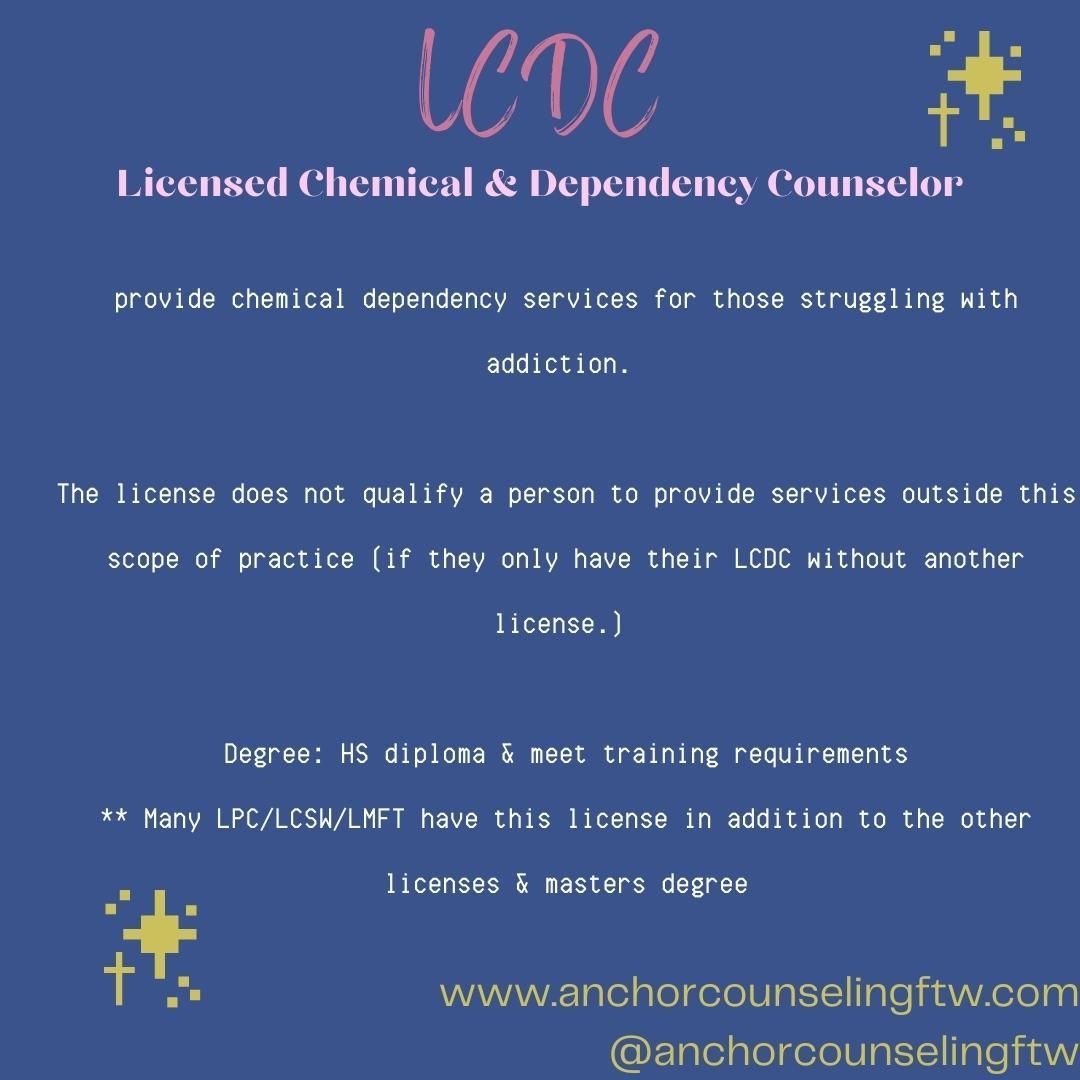
Licensed Chemical Dependency Counselor
LCDC (Licensed Chemical & Dependency Counselor) focus on addiction and dependency that clients may struggle with. Unlike the other licensed mental health professionals we have talked about, they are not able to counselor outside of these topics unless they hold an additional license. Many LCDC's are held by LPC/LMSW/LCSW/LMFT's that are able to counsel on a broader scale. Education: HS diploma with training if they only hold a LCDC license.
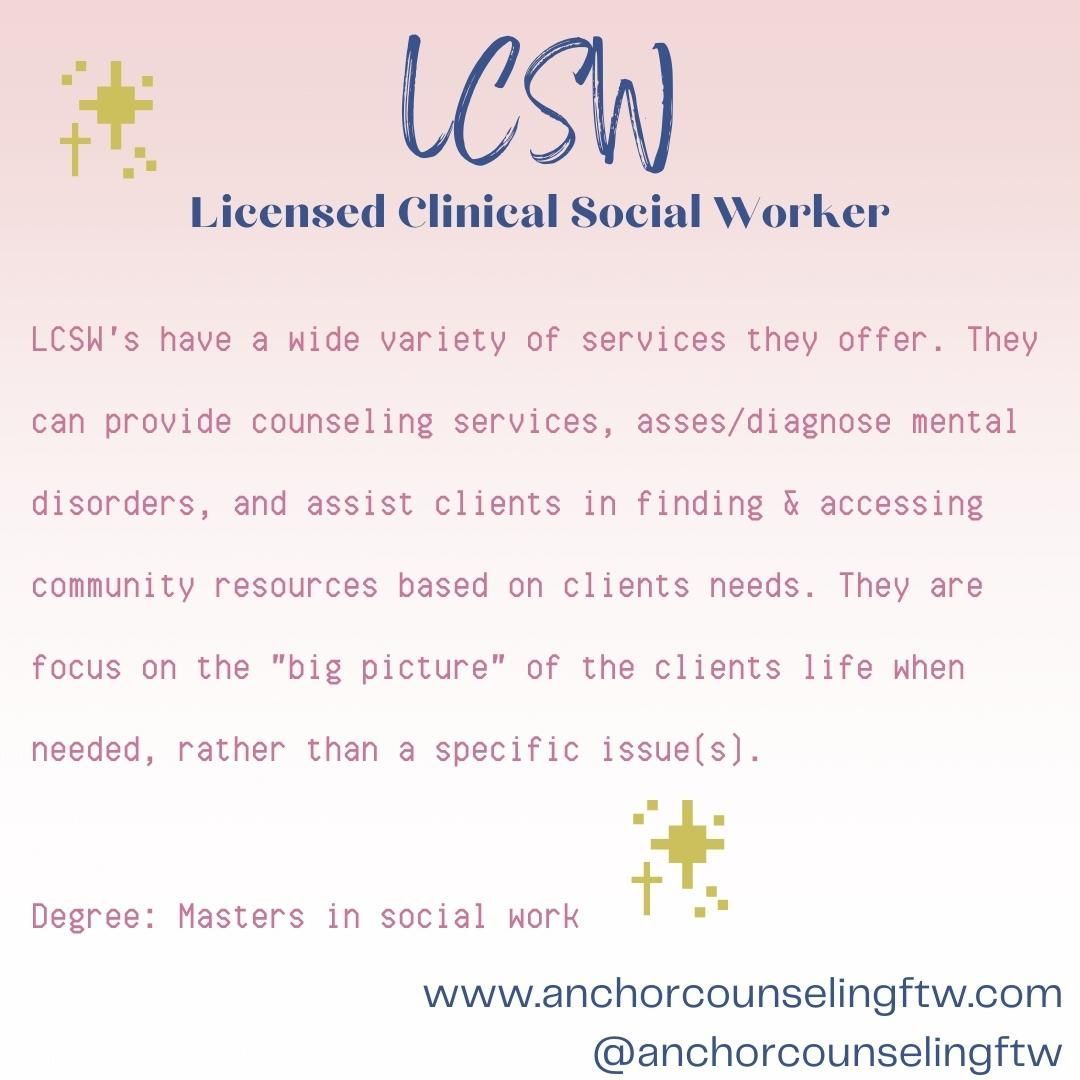
Licensed Clinical Social Worker
LMSW/LCSW (Licensed Master Social Worker & Licensed Clinical Social Worker's also help people work through varies issues in their lives. LMSW typically focus on communities and helping families find resources. LCSW's focus on the clinical aspect of helping people, similar to LPC's. LCSW's often counsel individuals and families. They often focus on a boarder issue but can work on individual issues as well. LMSW/LCSW's have a Masters degree in social work.
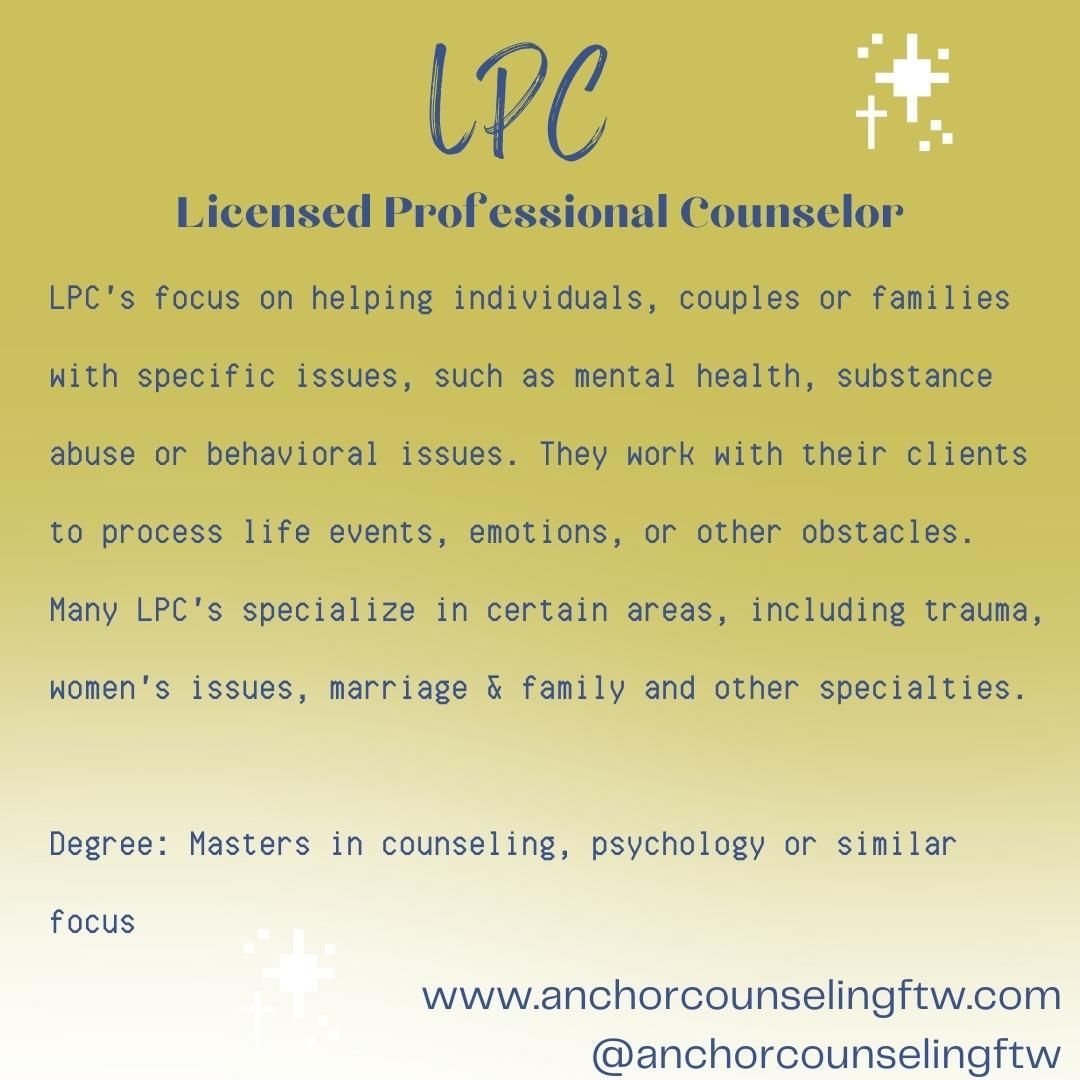
Licensed Professional Counselor
LPC (Licensed Professional Counselor) are qualified to counsel individuals, couples & families. Many LPC's have specialities that they prefer to work with or have additional training with. LPC's help their clients to overcome obstacles in their lives. Some of the common issues that they address are anxiety, depression, relationship issues, self esteem and body issues. All LPC's have a Masters degree in counseling, psychology or something closely related to the field.
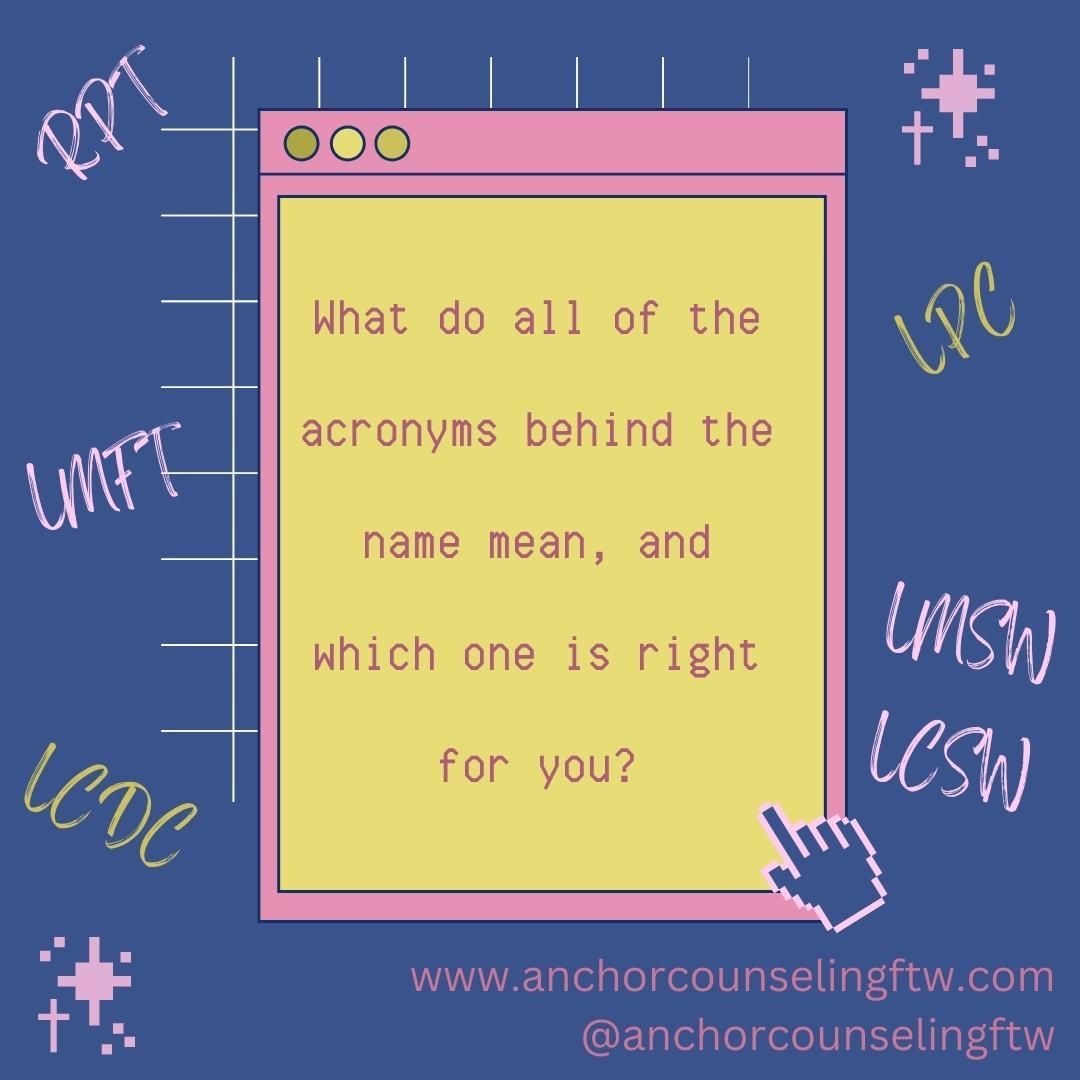
Acronyms
The world of therapy can be overwhelming. From picking a counselor to being anxious about your first session. One of those aspects is the acronyms. If you have ever searched for a therapist you probably noticed the list of acronyms behind their names and had no idea what they meant or which one is better for you. So we are going to help explain the differences and when you should take notice if you are looking for someone. Please note that all professionals with these titles are qualified to help you, some have specific licenses or training in particular areas but that does not mean they are not skilled in other areas as well.
